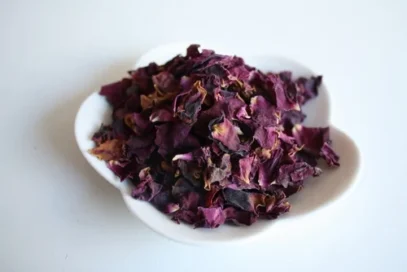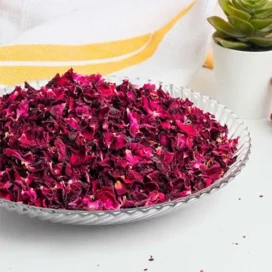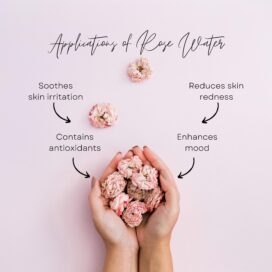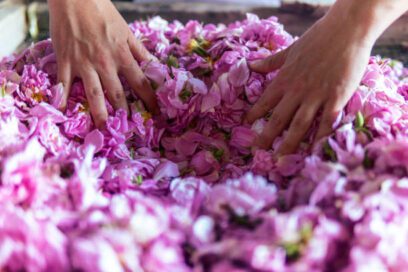

In the pursuit of a more natural and sustainable lifestyle, rose water emerges as a powerful ally. Derived from the petals of the magnificent rose flower, rose water not only holds beauty and medicinal properties but also aligns with the principles of eco-conscious living. In this blog, we explore the role of rose water in natural and sustainable living, emphasizing its benefits for both our well-being and the environment.
For those seeking natural and sustainable products, organic cultivation and extraction methods are crucial. Rose water derived from organically grown roses ensures minimal exposure to pesticides and harmful chemicals, promoting a healthier and more eco-friendly choice. By supporting brands that prioritize organic practices, we contribute to the preservation of soil quality, water resources, and overall environmental well-being.

Rose water stands out for its biodegradable and non-toxic nature, making it an excellent alternative to conventional beauty and household products. Unlike synthetic counterparts, rose water decomposes naturally, reducing the burden on our ecosystems and waterways. Moreover, its non-toxic properties eliminate the risk of harmful chemicals entering our bodies and the environment, allowing us to embrace a more sustainable and health-conscious lifestyle.


One of the remarkable aspects of rose water is its versatility, enabling do-it-yourself (DIY) projects and zero-waste initiatives. Crafting homemade rose water empowers individuals to take control of their beauty routines while reducing packaging waste. By repurposing rose petals and reusing glass bottles, we minimize our environmental footprint and promote a circular economy. Embracing DIY rose water formulations also encourages creativity and self-sufficiency, fostering a deeper connection with nature and sustainability.


Rose water’s diverse range of applications makes it a valuable asset in natural and sustainable living. From skincare to home cleaning, rose water can replace multiple conventional products, reducing the need for single-use items and excess packaging. Incorporating rose water into homemade face masks, toners, or hair rinses promotes a minimalist approach to beauty, while using it as a natural air freshener or linen spray minimizes reliance on synthetic alternatives. By embracing the versatility of rose water, we simplify our lives and contribute to a more sustainable future.


Supporting ethically sourced and fair trade rose water not only benefits our natural and sustainable lifestyle but also supports the well-being of communities involved in its production. By choosing brands that prioritize fair trade practices, we ensure that farmers and workers receive fair wages and operate under safe working conditions. Ethical sourcing also promotes the preservation of traditional knowledge and cultural heritage, fostering a more equitable and sustainable global trade system.


In conclusion, Rose water, with its natural essence and sustainable attributes, serves as a beacon of hope in the quest for a greener and more conscientious lifestyle. By embracing organic cultivation, DIY practices, multi-purpose applications, and ethical sourcing, we unlock the transformative potential of rose water in promoting natural and sustainable living, honoring our planet, and nurturing our well-being.